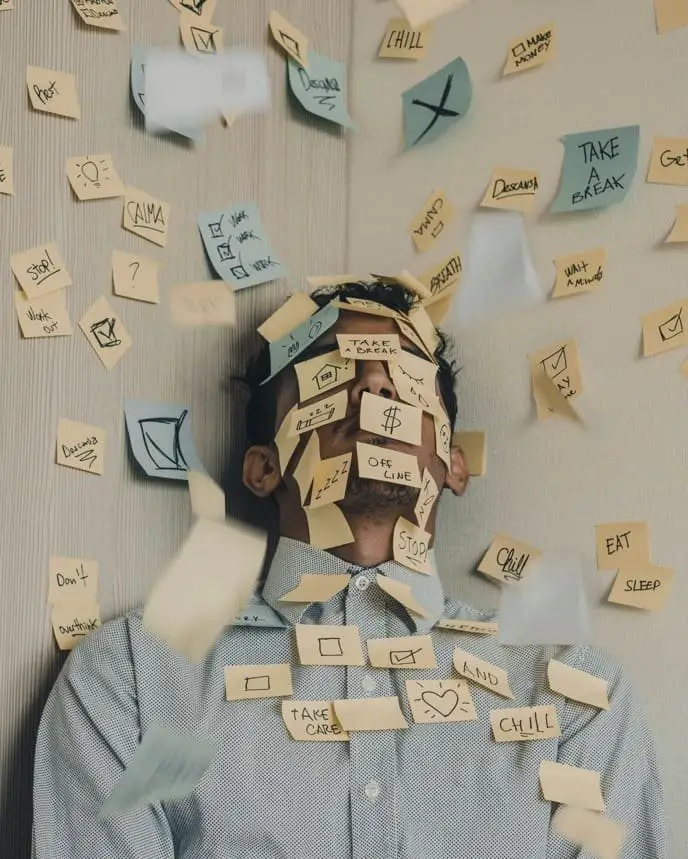A level of stress is expected when working on a project, especially if you are the project manager. Stress may be beneficial in keeping you motivated and focused on the tasks; however, if the workplace stress becomes too much, it can be detrimental to your health and the on-time completion of the project.
Excessive deadline stress may cause you to feel overwhelmed, leading to action paralysis or procrastination.
Below are tips to reduce project stress while also improving your mental health.
Come Up With a Project Completion Strategy
Before you dive into the various tasks, take some time to think through the project. Write down what the project requires in terms of resources and time. Break it down into various tasks. Come up with a budget and gather the necessary resources.
If you need to delegate some tasks, identify which ones, the right person to delegate to, and their timeline for delivery. Involve the various stakeholders early on in the project. Ensure everyone is on board, knows the project, understands their role, and clarifies the delivery parameters.
The last thing you want is executives and project team leads who exert too much pressure, team members who do not know what to do, or clients/customers who are dissatisfied with the outcome.
Another important aspect to think about when planning for your project is the challenges you may encounter that may affect the timeline and efficacy in project completion. Most people plan their projects with the best-case scenario.
Unfortunately, things don’t always go as planned. You or a project team member may fall sick, your productivity may decline, and some tasks may take longer to complete than expected, among other issues.
When planning your deadline, you want to work as leanly as possible and complete the tasks in the indicated time, but you should also have room for some adjustment. In most cases, the project will take slightly longer than you anticipate.
Therefore, allow yourself a bit more time to prevent yourself from becoming overwhelmed. For instance, if you think you will have completed the project in 10 days, set the deadline to 9 or 10 days.
The deadline has to be concrete rather than tentative, or else you may start slacking, causing you to take way longer than needed and may also cause unnecessary stress.
Prioritize Your Tasks
The first step to prioritizing your tasks is writing down all the tasks for the project. Initially, don’t worry about their order; instead, focus on ensuring you have accurately identified all the tasks.
Then, identify urgent and important tasks. Which ones need immediate attention? Which ones have to be accomplished before the others? If not accomplished on time, which ones will have dire consequences on the client relationship or the completion of the entire project?
Also, assess the task according to its value. For instance, client work may be more important than answering emails. Another consideration when prioritizing tasks is the amount of effort specific tasks require. Productivity experts recommend scheduling these tasks in your most productive part of the day.
Organize your tasks, starting with those that are both high-value and time-sensitive. Then follow with high-value tasks that are not time-sensitive. Also, list the time-sensitive medium-value tasks such as team communication and project organizing.
Finally, list low priority tasks and decide whether you will do them yourself, delegate, or drop them.

Do Not Multitask
When you have tons to do, you may think that you will get more done by undertaking several tasks at a time. However, multitasking is counterproductive.
It may cause you to feel overwhelmed and anxious, increasing stress levels around the project. Your attention becomes thinly divided among the various tasks, so you do not give each task the focus it requires.
This reduces the quality of delivery as there is an increased risk of making mistakes. Your creativity becomes inhibited as the brain experiences cross-firing and attempts to process various tasks simultaneously. You may feel more tired and irritated than usual at the end of the day.
Therefore, it is best to focus on one task at a time. Give each your full attention and do it comprehensively. Then proceed to the next one and complete it fully. You will notice a seamless flow between the tasks, and as you tick them off your to-do list, you will feel satisfied, motivated, and energized to keep going.
Manage Your Attitude Towards the Projects
Sometimes, stress can result from your perception of the project. Therefore, you want to maintain a positive, optimistic attitude during the project. Could the project be challenging? Yes. But you can choose to show up every day with enthusiasm. Focus on one task at a time. If you encounter problems, find ways to resolve them rather than complain.
Pace Yourself
Plan your schedule in a way that works for you. For instance, if you are more creative in the morning, block out some hours in the morning to do tasks that require heavy mental lifting. Then dedicate time for administrative work later in the day.
Divide your schedule into uninterrupted chunks of time as per your concentration span. Some people like to work nonstop for up to 2-3 hours, while others do better with shorter chunks, e.g., 30 – 60 minute intervals.
Similarly, some people like to go all in for a few days in a week and ease off for the rest of the week, while others prefer to work on a project consistently each day for several hours. Establish what works for you and pace yourself accordingly. If you are working an 8-5, plan your schedule to fit your organization’s time plan.
Be Mindful of Yourself Throughout the Project
Be mindful of your mental, emotional, and physical state throughout the project. Notice when you are feeling tired and fatigued and take some time off. Notice when resistance and pessimism creep up and check it. If you notice yourself procrastinating a lot, dig deep to find out the main cause.
Meditate or Do Breathing Exercise Before Starting Your Day
These mindfulness activities center your mind and help you let go of any mental clutter and stress you may be experiencing. They also help transition your mind from the hyperactive beta state to the alpha state, where you are more creative. They are a great tool for mapping your day with clarity and gearing up your energy to do what needs to be done.
At the start of the day or work, sit down in silence for a few minutes to allow yourself to settle in. Below is a short meditation you can do to get yourself centered and grounded to work on your project more effectively and efficiently.
- Close your eyes and take 5 deep breaths.
- Feel your presence in the space you are occupying. Notice any noises in the room you are in. Then notice the parts of your body that contact the chair you are sitting on. Now, notice how the chair and the ground beneath support your weight.
- Bring your attention back to your breathing. Notice the rise and falling of your chest as you breathe. Do not alter your breath; rather, notice its natural flow.
- Bring your attention to your nostrils and notice your breath as it comes in and goes out.
- Once you feel calm, bring to mind the goal of the day. Which tasks will you be working on today? Which ones are most urgent and important? If you cannot do anything else, which ones must you complete today?
- Map out the day. Visualize yourself doing each task. Visualize as much detail as possible, including how you want to feel as you do the tasks. See yourself being creative, focused, and energized as you do each task. See yourself transition with ease from one task to another. Also, you can take a short break, enjoy some brief time away from work, and get right back in with ease.
- Make a personal commitment to do your best.
- Place your hands on your chest and take deep breaths. As you notice your chest rise and fall, surrender yourself to the day ahead.
- Take a few more deep breaths, open your eyes, and get on with your day.
Monitor and Evaluate the Project Closely
The key to effective implementation is project monitoring and evaluation. It ensures that you are on track with achieving the project deliverables. By closely monitoring a project, you can easily tell if you are making progress in the right direction, identify any challenges, and establish if you need to re-plan.
Don’t wait until you have completed the project to monitor it. Monitor each step of the way. Project monitoring starts in the project planning phase. When planning for other aspects of the project, you also need to plan how you will monitor and evaluate it. Define what overall project success will look like. Define the key milestones, deliverables, and performance indicators. Define the timelines for the milestones.
Have regular check-ins with the various team members to check on the project’s progress in real-time. Schedule periodic team meetings to evaluate the collective progress. Have the team members make suggestions and recommendations and implement them in the project to improve performance in the next phases.

Incorporate Relaxing and Rejuvenating Activities in Your Day
Schedule your favorite activities in your day. Plan for the coffee break or lunch break with a friend or a 10-15 minute walk to help you rejuvenate. Schedule the end of your workday.
For instance, plan your day to be done with work by 5 pm and proceed to the gym or spend quality time with your loved ones. Watch a movie in the evening, indulge in your favorite meal, or attend karaoke in the evening. Make sure you get enough sleep.
Taking time away from the project can be equally beneficial as spending just the right time and effort. Deliberately taking time out may spark creativity. If the project is particularly stressful, taking time away each day can help you decompress and improve your perspective.
Control What You Can and Let Go What You Can’t
When working on a project, there is a lot that you can control, but there may be things that come up that are out of your control. Master what is within your control as best as possible to steer the project towards success.
Even when unprecedented occurrences come up, do your best to take the appropriate action. Ask for help where need be. However, if it is completely out of your control, let go, learn the lessons, and move on.
Conclusion
Projects can be exciting, but they can also be quite stressful. Depending on the scope and complexity of the projects, there may be lots of tasks and people involved to complete them. Proper planning and team management are essential for successful project completion. You also need to operate optimally for the best outcome.
Stress can be detrimental to your performance when working on a project. It drains you mentally, emotionally, and physically resulting in poor performance. Therefore, it is important to take measures to reduce it personally and among your team members.
With your team, have clear communication and ensure that everyone is aware of their roles and deliverables. Have a well-stipulated strategy with milestones and deliverables well outlined. Regularly monitor and evaluate progress and make any necessary changes.
Personally, manage your energy and mindset. Plan your schedule to optimize productivity and creativity. Incorporate activities such as meditation, breathing exercises, and short breaks to help with clarity, concentration, and energy levels. Go all in during work time and all out away from work.




